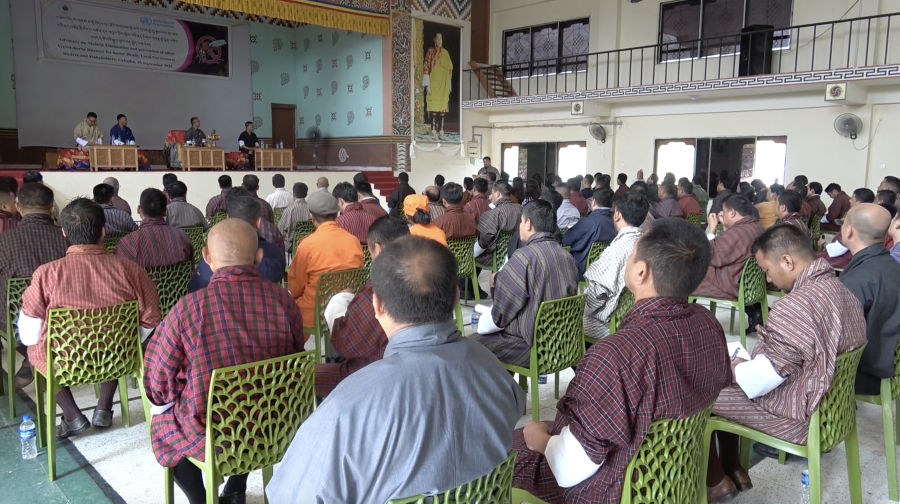 As Bhutan pushes toward its goal of malaria-free status by 2025, the Department of Public Health held a high-level advocacy programme in Dekiling, Sarpang. With imported cases still slipping across the porous southern border, local leaders and health officials are being called on to keep their communities alert and proactive in the fight against malaria.
As Bhutan pushes toward its goal of malaria-free status by 2025, the Department of Public Health held a high-level advocacy programme in Dekiling, Sarpang. With imported cases still slipping across the porous southern border, local leaders and health officials are being called on to keep their communities alert and proactive in the fight against malaria.
The programme, held at the Jigme Wangchuck Power Training Institute in Dekiling, was part of a wider advocacy tour covering six southern districts: Zhemgang, Samdrup Jongkhar, Dagana, Samtse, Chhukha, and Sarpang.
The Director of the Department of Public Health, Karma Jamtsho, said local leaders and regional officials play a vital role because of their close contact with communities. He urged them to guide and remind people about malaria prevention methods and to remain vigilant as Bhutan approaches the 2025 deadline.
“This advocacy is important because it involves leaders who work closely with the people. We expect them to lead, guide, and constantly sensitise citizens on preventing mosquito breeding and stopping the spread of malaria,” said Karma Jamtsho, Director, Department of Public Health, MoH.
Officials from the Vector-Borne Disease Control Programme in Gelephu reminded participants that although no local transmission has been reported in the last three years, the risk remains high in southern districts. Sixteen imported cases have already been detected this year, twelve of them in Sarpang alone.
“So far, all the malaria cases reported in our region have originated from areas along the border. Only a few cases have been detected locally, and even those were imported from neighbouring border towns,” said Tobgay, Program Analyst, Vector-Borne Disease Control Programme, Sarpang.
Participants suggested stronger measures to curb the threat, including deploying health officials at border gates to screen commuters for malaria, and requiring individuals who import malaria into Bhutan to bear the treatment cost or face penalties.
The programme saw a turnout of more than 130 participants, including local leaders, sector and regional heads, health officials, and community representatives. They are expected to take the advocacy further by sensitising their communities on Bhutan’s goal to achieve malaria-free status by 2025.
Karma Wangdi, Gelephu
Edited by Passang Dorji







